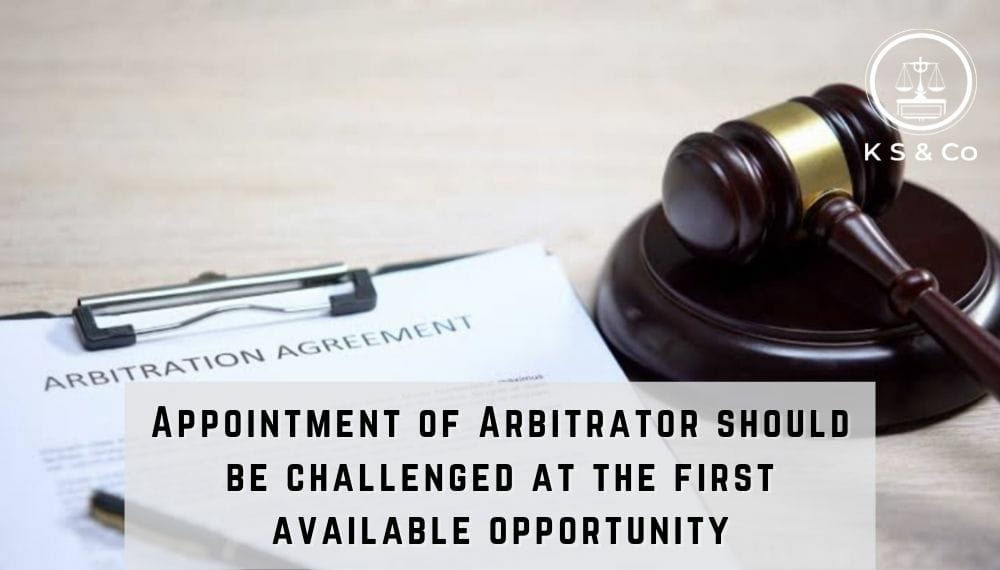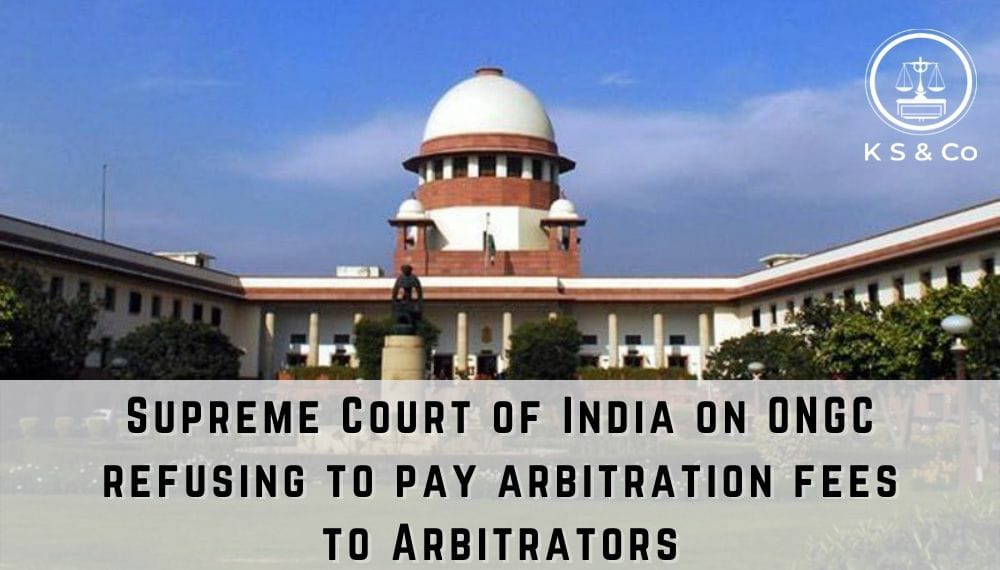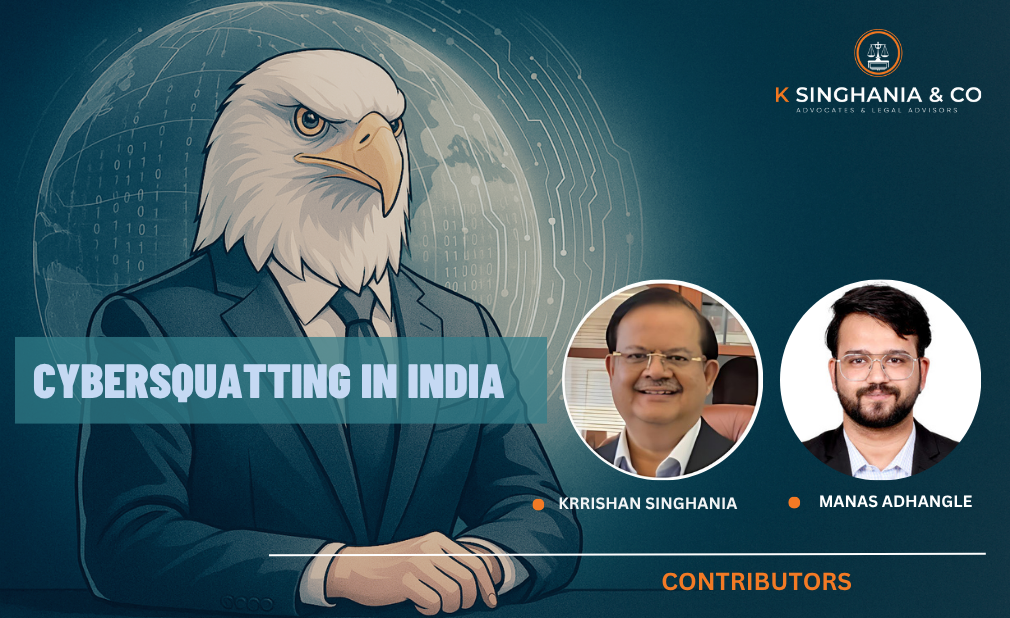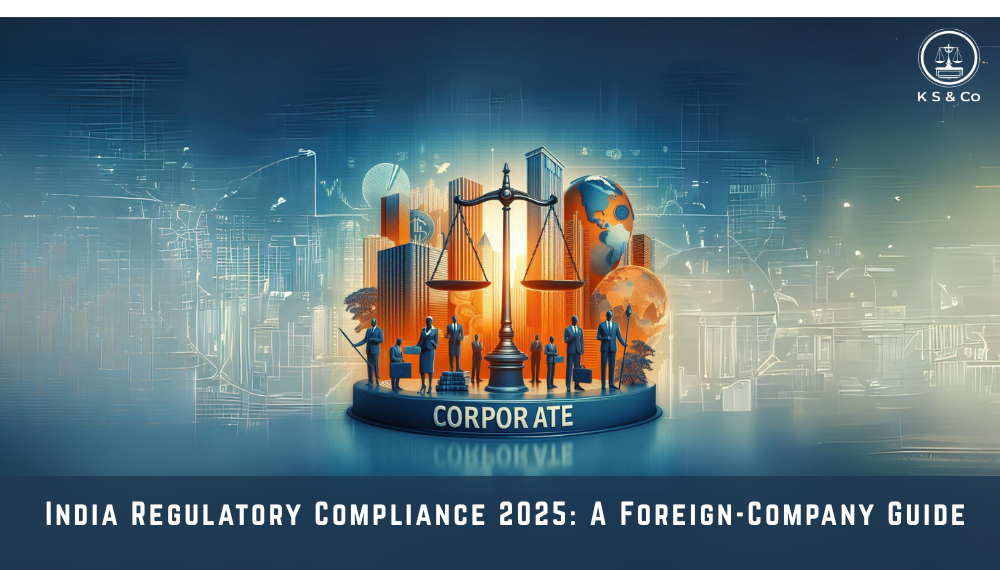Facts of the case:
In the case on hand, the Appellant advanced a sum of INR 2 Crores to the Respondent No. 2 as a loan who had assured that the same shall be repaid to him at a later date. In lieu of the sum advanced, the Respondent No. 2 issued six cheques aggregating the advanced amount as ‘security’ towards repayment of the loan.
Thereafter, when the loan was not repaid within the agreed time, the Appellant presented the cheques for payment but the same were dishonoured due to insufficient funds in the Respondent No. 2’s bank account. Accordingly, the Appellant issued a legal notice, under Section 138 of the Negotiable Instruments Act, 1881 (“NI Act”). Further, since the Respondent No. 2 had taken money from the Appellant on the assurance that the same would be returned, but deceived the Appellant, the Appellant contended that Respondent No. 2 had cheated him and accordingly filed complaints under both section 420 of the Indian Penal Code, 1860 and Section 138 of the NI Act. .
The Learned Judicial Magistrate took cognizance of the complaints and issued summons to Respondent No. 2. Moreover, the Learned Magistrate rejected Respondent No. 2’s miscellaneous petition seeking discharge from the criminal proceedings. Thereafter, the Jharkhand High Court set aside the orders passed by the Judicial Magistrate. Therefore, the Appellant approached the Supreme Court for the impugned order passed by the Hon’ble High Court.
Issues:
Whether under the present proceedings an offence under Section 138 of the NI Act is made out, as the dishonourment alleged is of the cheques which were issued by way of ‘security’ and not towards discharge of any legally enforceable debt.
Held:
The Division Bench of Hon’ble Justice MR Shah and AS Bopanna held that if a loan is advanced and the borrower agrees to repay the amount within a specified timeframe and issues cheques as a security to secure such repayment and if the loan amount is not repaid in any other form before the due date or if there is no other understanding or agreement between the parties to defer the payment of amount, the cheques which are issued as security would mature for presentation and the drawee of the cheque would be entitled to present the same. On such presentation, if the same is dishonoured, the consequences under Section 138 and the other provisions of the NI Act would apply. Hence, the Supreme Court restored the orders passed by the Judicial Magistrate which rejected the petition for discharge by the accused.
Comments:
In the present case, the Hon’ble Supreme Court whilst stating that a cheque issued as security pursuant to a financial transaction cannot be considered as a ‘worthless piece of paper under every circumstance’, dealt with a very important issue about dishonour of cheques which are given towards security. In the cases of dishonour of cheques several times the accused takes the defence cheque dishonoured was given towards ‘security’ and hence S. 138 NI Act is not attracted. However, this case lays down a very important ratio that the cheque given towards ‘security’ for loan if dishonoured will attract S. 138 NI Act, in case at the date of presentation of the cheque, the loan was matured for repayment and was not paid by any other mode before the cheque was presented for encashment.

2. Union of India VC. Manraj Enterprises (2021 SCC OnLine SC 1081)
Facts of the case:
In the present case the parties had entered into a contract with regards to three work contracts. A dispute had arisen between the parties and both the parties went into arbitration for resolution of the dispute. The arbitrator awarded an amount of INR 78,81,553.08 along with pendente lite and future interest at the rate of 12 % and 18 % respectively on the entire amount that was awarded except for the earnest money deposit and security deposit. That the Union of India then preferred an appeal challenging the arbitration award pertaining to pre-suit, pendente lite and future interest awarded on the balance due payment. Both a Single Judge as well as the Division Bench of The Hon’ble Delhi High Court dismissed the appeal and confirmed the award of the arbitrator. The Union of India preferred the current appeal after being aggrieved and dissatisfied with the impugned judgment of the Delhi High Court.
Issue:
Whether the arbitrator had the power to levy any interest pendente lite on the amounts payable to the Respondent even though Clause 16(2) of the contract entered into between the parties stated that ‘No interest will be payable upon the earnest money or the security deposit or amounts payable to the contractor under the Contract’?
Held:
The Apex Court observed that Section 31(7) of the Arbitration and Conciliation Act, 1996, by using the words “unless otherwise agreed by the parties”, categorically specifies that the arbitrator is bound by the terms of the arbitration agreement entered into between parties regarding any award of interest from the date of cause of action to the date of the award. It further held that where the parties had agreed that no interest shall be payable, the Arbitral Tribunal cannot award interest. Therefore, it held that the arbitrator had erred in awarding pendente lite and future interest on the amount due and payable to the Respondent under the contract. Accordingly, the dues payable to the respondent under the contract were quashed and set aside.
Comments:
This judgment highlights the concept of an ‘arbitrator is a creature of the contract’. The Apex Court has by way of this judgment reaffirmed that an arbitrator does not have the authority to perform any act which is contrary to the terms of the agreement/contract which is entered into between the parties.

3. Kanodia Infratech Limited VS. Dalmia Cement (Bharat) Limited (2021 SCC OnLine Del 4883):
Facts of the case:
Kanodia Infratech Ltd. (Petitioner) and Dalmia Cement (Bharat) Ltd. (Respondent) had agreed on a Memorandum of Understanding (MoU) for the use of a cement grinding plant (Plant), at Bihar, by the Respondent and a further purchase of the said Plant by the Respondent through a Share Purchase Agreement. The Respondent offered to take over the shareholding of the Petitioner at a price of Rs. 250 Crores plus tax implications on the purchase which was said to have been accepted by the Petitioner. However, due to the conditional delays in the execution of the Share Purchase Agreement the parties agreed that the Respondents could commence the operations at the plant, because of which, multiple agreements were executed between the Petitioner and Respondent.
The entire gamut of operations and control was entrusted to the Respondent for efficient functioning of the plant. The Petitioner was always kept in the dark with respect to its daily operations and the decisions which were made by the Respondent were always troublesome for the Petitioner. Further, the Respondent failed to procure clinker for the Plant which was one of its main obligations. As a result of this the Respondent ran into losses and was unable to run the Plant and hence the Petitioner intended to terminate the contract with the Respondent. The Petitioner approached the Hon’ble High Court of Delhi under section 9 of the Arbitration and Conciliation Act, 1996 (1996 Act) to restrict the access of the Respondent to the plant, however, the Respondent had invoked arbitration and appointed a sole arbitrator only a day before this petition and hence the Petitioner had to withdraw it with the liberty to approach the sole arbitrator under section 17 of the 1996 Act. The learned arbitrator passed an award in favour of the Respondent, but the Petitioner filed an application for setting aside the award.
Issue:
Whether the active participation of the petitioner in the arbitration process be used as a way of waiver to challenge the unilateral appointment of the arbitrator?
Held:
While rejecting the case of the Petitioner, challenging the mandate of the Arbitral Tribunal, the Hon’ble High Court held that the appointment of the learned arbitrator, by the Respondent, was never objected to by the Petitioner until this very petition and that the Petitioner had had actively participated in the arbitration proceedings, as was evident from the fact that as many as 45 orders had been passed by the learned arbitrator during the pendency of the arbitration proceedings. It was held that the scope of interference in arbitral award is very limited under Section 34 of the 1996 Act and can be considered only when the tribunal exceeds its jurisdiction.
Comments:
The Appointment of arbitrator should be challenged at the first available opportunity. Participating in the arbitration proceedings without any demur or protest and challenging the unilateral appointment of the arbitrator after the award is delivered would only show implied consent of the party for the appointment of the arbitrator and hence the belated challenge to the said appointment is rendered meaningless.

4. Welspun Specialty Solution Limited VS. Oil and Natural Gas Corporation Ltd. (2021 SCC OnLine SC 1053)
Facts of the case:
The Oil and Natural Gas Corporation Ltd were the respondent who had floated a global tender for the purchase of steel casing pipes (Respondent) whereas Welspun Specialty Solution Limited (formerly known as Remi Metals Gujarat Ltd.) were the appellants who were the successful bidder (Appellant). Thereafter, the purchase orders (POs) were issued by the Respondent to the Appellant who had specifically mentioned that the “time and date of delivery were the essence of the supply order and delivery must be completed not later than the date specified therein.”
However, there were certain delays on the part of the Appellant and in view of this many extensions were granted by the Respondent and waived the liquidated damages for the first two extensions and deducted liquidated damages for the remaining extensions which were granted to the Appellant. Accordingly, the Respondent deducted a sizable amount for the liquidated damages from various bills submitted by the Appellant.
The Appellant, therefore, approached the Arbitral Tribunal for disputing these deductions made by the Respondent. The Arbitral Tribunal rejected the Respondent’s claim by holding that time was not the essence of the contract in the immediate case as merely having a clause that states time is the essence of the contract would not be determinative and that all the terms of the contract must be considered. Hence, liquidated damages could not be granted. The Respondent, aggrieved by the order, filed a petition under section 34 of the Arbitration and Conciliation Act, 1996 (the Act) before the District Court. The District Court upheld the award with a modification in the costs of arbitration but the same was challenged by both the parties before the High Court of Uttarakhand under Section 37 of the Act. The Hon’ble High Court allowed the appeal filed by the Respondent but dismissed the Appellant’s appeal. Thus, a Review Petition was filed by the Appellant, being aggrieved by the order of the High Court and a Special Leave Petition against the order passed in the above-mentioned Review Petitions.
Issues:
Whether time was the essence of the contract between the parties in the case on hand?
Held:
Upholding the opinion of the arbitral tribunal, the Apex Court held that time was not the essence of the contract between the parties in this case. Further, the Apex Court held that ‘whether time is of the essence of the contract’ must be opined from the reading of the entire contract as well as the surrounding circumstances. Merely having an explicit clause may not be sufficient to make time the essence of the contract. It concurred with the Tribunal’s finding that the existence of an extension clause has diluted the Appellant’s case and upheld the award as being based upon the contractual conditions and conduct of the parties.
Comments:
In the present case, the Apex Court has observed that to determine whether time is of the essence of the contract it is not only key to have an explicit clause to that effect but also it is important to examine the other clauses of the contract to ensure nothing to the contrary has been stated therein. The Apex Court has also emphasised on the importance of the conduct of the parties and has stated that the same shall be consistent with the understanding of the agreement wherein time is of the essence. Further, the Apex Court has also in this case, highlighted that the purpose of Section 34 is to strike a balance between the Court’s appellate powers and the integrity of the arbitral process. Therefore, under Section 34 the court can interfere with an arbitral award on certain specific grounds which have been laid thereunder i.e., if opposed to public policy etc.

The Apex Court of India pulls up ONGC over arbitration fees (M/s. Schlumberger Asia Services Ltd. VS. ONGC)
The Supreme Court of India came down heavily on ONGC for refusal of payment of fees to the arbitrators. The bench, which was headed by Chief Justice of India NV Ramana, noted that the former judges of the High Court chose to opt out of the arbitration proceedings as arbitrators, due to non- payment of their fees.
The case on hand is that of M/s. Schlumberger Asia Services Ltd. VS. ONGC. A letter was written by Justice S.C. Dharmadhikari, who seeked recusal as an arbitrator as well, wherein it was mentioned that first ONGC sought time to inform the tribunal if it was willing to accept the determination of fees but later went on to inform that ONGC would not agree to anything except the one that was determined under the clause of the contract.
The Court added that the company did not have any respect for the judges and that they are filing cases of which the fees did not want to be paid. Further, the bench called upon Attorney General KK Venugopal to bring to his notice the ‘arrogance’ of ONGC for not agreeing to pay the arbitration fees of the arbitrators.






